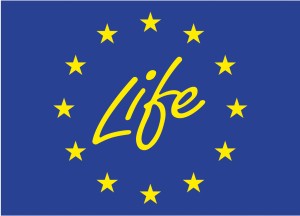
 Prof Martin Kretschmer, Professor of Information Jurisprudence and Research Centre Director for CIPPM in the Business School, recently attended a meeting organised by the British Academy and the ESRC on Engaging Academic Social Scientists in Government Policy-Making and Delivery. Here he provides an overview of the issues discussed at the event…
Prof Martin Kretschmer, Professor of Information Jurisprudence and Research Centre Director for CIPPM in the Business School, recently attended a meeting organised by the British Academy and the ESRC on Engaging Academic Social Scientists in Government Policy-Making and Delivery. Here he provides an overview of the issues discussed at the event…
Making research relevant to policy is on the agenda of all Research Councils, as reflected in the Impact measure of REF 2014. The event was co-sponsored by the Government Heads of the Analytical Professions: Government Economic Service, Government Operational Research Service, Government Science & Engineering, Social Science in Government, and the Government Statistical Service. The programme and list of attendees is available here: British Academy event programme and delegate list
Some of the issues raised, and questions asked of the attendees included:
Q1: What do you think government should be doing more of to increase the influence of your research and expertise on government policy making and delivery?
Q2: What do you think the academic social science community should be doing more of to have a direct influence on government policy making and delivery?
Q3: What might encourage you to consider an advisory role to government, for example, as a social scientist on one of the government’s Scientific Advisory Committees?
 I assume I was invited because I am just coming to the end of an ESRC Public Sector Fellowship in the UK Intellectual Property Office (within BIS). I also sit on the government’s Copyright Advisory Expert Group, and speak frequently on policy issues, for example last week (1 June) at a Hearing in the European Parliament on The Future of Copyright in the Digital Era.
I assume I was invited because I am just coming to the end of an ESRC Public Sector Fellowship in the UK Intellectual Property Office (within BIS). I also sit on the government’s Copyright Advisory Expert Group, and speak frequently on policy issues, for example last week (1 June) at a Hearing in the European Parliament on The Future of Copyright in the Digital Era.
Below, I summarise a few points from the meeting that may be useful for the wider BU research community.
Prof Nick Pidgeon (Professor of Environmental Psychology, University of Cardiff, and Director of the Understanding Risk Research Group) offered 4 routes to influencing government:
- Government contract research, including small review contracts.
- RCUK (or similar) funding in policy relevant area.
- Advisory Committees.
- Indirectly, via dissemination through Royal Society, RSA, or similar.
Paul Johnson (Director of the Institute for Fiscal Studies): “Don’t expect to change government policy if your evidence points in a different direction.” There are two choices: EITHER Focus on points of detail within the policy direction given by government, OR Set agenda for 5 years hence.
Sir John Beddington (Government Chief Scientific Advisor) stressed the tightrope walk between advice that is a “challenge” and being labelled “unhelpful” (in Sir Humphries language). Academics should risk “challenge” even if it turns out to be “unhelpful”.
Prof Philip Lowe (Professor of Rural Economy, University of Newcastle, and Director of the Rural Economy and Land Use Programme): There is a paradox – How can a government department become a sophisticated consumer of research? Commissioning good research requires being able to know what you don’t know. Hard for civil servants and politicians. Important to build and sustains links over many years.
Prof Helen Roberts (Professor, General Adolescent and Paediatrics Unit, University College London, and non-executive director of the National Institute for Health and Clinical Excellence NICE): Public sector placements are very useful, both for academic and government, but governance of these grants can be cumbersome. [I can confirm that from my own secondment experience. At some point, there were suggestions that detailed delivery contracts would have to be drawn up between ESRC and BU, ESRC and BIS/IPO, BIS/IPO and BU. In the end, I was simply shown the Official Secrets Act, and the Code of Conduct for Civil Servants, and that was it.]
Importance of human dimension: “Most implementation comes though good relationships, not good research.”
Sharon Witherspoon (Deputy Director of the Nuffield Foundation, and in charge of research in social science and social policy): Most policy advisors double in “empirically informed counterfactuals”, and are normally grateful if offered help with: “What would happen if…” But academics can often make the most telling contribution by more radical reflection: “I wouldn’t start from here”. Governments are less likely to be open to that kind of challenge. Select Committees are becoming more independent of government (now have elected chairs). They can be a route to influence.
Paul Doyle (CEO, ESRC): The ESRC is building a database of government policy leads/contacts. Often it is impossible from government websites to identify the civil servants and special advisors dealing with specific policy issues. Government scientists should be encouraged to become members of Learned Societies.
Key points from the open discussion:
- Importance to keep independence by constructing portfolio of funders.
- Economists are a separate breed in government. They have little concept of wider social research.
- Responding to consultations is often a good first step to engagement.
- Academics should use less jargon, shorter sentences.
- Visual representation of research findings matters greatly.
- Often it is useful to invite policy makers to academic events. They enjoy coming out of the office, and are less partisan/circumspect in a neutral environment.
- There is an important corrective function for social scientists in assessing the presentation of data.
- Difficulty in presenting the audit trail required for REF Impact. Government does have no interest in revealing the sources of its ideas, or it may be politically inconvenient to do so.
 The ESRC has updated its research data policy .
The ESRC has updated its research data policy .









 Prof Martin Kretschmer
Prof Martin Kretschmer I assume I was invited because I am just coming to the end of an
I assume I was invited because I am just coming to the end of an 












 Dr. Ashraf cited on ‘Modest Fashion’ in The Guardian
Dr. Ashraf cited on ‘Modest Fashion’ in The Guardian NIHR-funded research launches website
NIHR-funded research launches website Academics write for newspaper in Nepal
Academics write for newspaper in Nepal New paper published on disability in women & girls
New paper published on disability in women & girls Global Consortium for Public Health Research 2025
Global Consortium for Public Health Research 2025 MSCA Postdoctoral Fellowships 2025 Call
MSCA Postdoctoral Fellowships 2025 Call ERC Advanced Grant 2025 Webinar
ERC Advanced Grant 2025 Webinar Horizon Europe Work Programme 2025 Published
Horizon Europe Work Programme 2025 Published Horizon Europe 2025 Work Programme pre-Published
Horizon Europe 2025 Work Programme pre-Published Update on UKRO services
Update on UKRO services European research project exploring use of ‘virtual twins’ to better manage metabolic associated fatty liver disease
European research project exploring use of ‘virtual twins’ to better manage metabolic associated fatty liver disease